 APPLES FROM SHINAR APPLES FROM SHINAR
APPLES FROM SHINAR APPLES FROM SHINAR

WESLEYAN POETRY CLASSICS

Wesleyan University Press Middletown CT 06459 www.wesleyan.edu/wespress Poems 1950, 1952, 1953, 1954, 1955, 1956, 1958, 1959 Estate of Hyam Plutzik Preface of 2011 edition 2011 Estate of Hyam Plutzik Afterword by David Scott Kastan 2011 Wesleyan University Press All rights reserved Manufactured in the United States of America Wesleyan University Press is a member of the Green Press Initiative. The paper used in this book meets their minimum requirement for recycled paper. Grateful acknowledgment is made to the editors of the following publications in which some of these poems first appeared:
Accent, The American Scholar, Antioch Review, Beloit Poetry Journal, Epoch, Fifteen Modern American Poets by George P. Elliott,
Furioso, The Hopkins Review, New World Writing No. 8, Prairie Schooner, Saturday Review, The Sewanee Review, The Transatlantic Review, and
Yale Review. Library of Congress Control Number: 2011924376 ISBN 978-0-8195-7167-0 5 4 3 2 1 TO THE MEMORY OF MY FATHER PREFACE A recent traveler in Granada, remembering the gaiety that had greeted him on an earlier visit, wondered why the place seemed so sad. The answer came to him at last: This was a city that had killed its poet.
He was talking, of course, of the great Federico Garca Lorca, murdered by Francos bullies during the Spanish Civil War. But are there not many cities and many places that kill their poets? Places nearer home than Granada and the Albaicn? The poets, true, are humbler than Lorca (for such genius is a seed as rare as a rocs egg), and the deaths are less brutal, more subtle, more civilized. Against us, luckily, there are no squads on the lookout. There is no conspiracy against us, unless it is a conspiracy of indifference. But there are more powerful things in the modern world (and people who are the slaves of things, and people who are things) that move against poetry like an intractable enemy, all the more horrible because unconscious. They would kill the poetthat is, make him stop writing poetry.
We must stay alive, must write then, write as excellently as we can. And if out of our labors and agonies there appears, along with our more moderate triumphs, even one speck of the final distillate, the eternal stuff pure and radiant as a drop of uranium, we are justified. For history, which does not lie, has proven that our product, if understood and used as it ought to be, is more powerful for the conservation of man than any mere material metal can be for his destruction. HYAM PLUTZIK
writing for the Rochester
Poetry Society, October 1950 BECAUSE THE RED OSIER DOGWOOD Because the red osier dogwood Is the winter lightning, The retention of the prime fire In the naked and forlorn season When snow is winner (For he flames quietly above the shivering mouse In the moldy tunnel, The eggs of the grasshopper awaiting metamorphosis Into the lands of hay and the times of the daisy, The snake contorted in the gravel, His brain suspended in thought Over an abyss that summer will fill with murmuring And frogs make laughable: the cricket-haunted time) I, seeing in the still red branches The stubborn, unflinching fire of that time, Will not believe the horror at the door, the snow-white worm Gnawing at the edges of the mind, The hissing tree when the sleet falls. For because the red osier dogwood Is the winter sentinel, I am certain of the return of the moth (Who was not destroyed when an August flame licked him), And the cabbage butterfly, and all the families Whom the sun fathers, in the cauldron of his mercy. THE DREAM ABOUT OUR MASTER, WILLIAM SHAKESPEARE This midnight dream whispered to me: Be swift as a runner, take the laneInto the green mysteryBeyond the farm and haystack at Stone.You leave tomorrow, not to return. Hands that were fastened in a vise, A useless body, rooted feet, While time like a bell thundered the loss, Witnessed the closing of the gate.
Thus sleep and waking both betrayed. I had one glimpse: In a close of shadow There rose the form of a manor-house, And in a corner a curtained window. All was lost in a well of trees, Yet I knew for certain this was the place. If the hound of air, the ropes of shade, And the gate between that is no gate, Had not so held me and delayed These cowardly limbs of bone and blood, I would have met him as he lived! TO MY DAUGHTER Seventy-seven betrayers will stand by the road, And those who love you will be few but stronger. Seventy-seven betrayers, skilful and various, But do not fear them: they are unimportant. You must learn soon, soon, that despite Judas The great betrayals are impersonal (Though many would be Judas, having the will And the capacity, but few the courage).
You must learn soon, soon, that even love Can be no shield against the abstract demons: Time, cold and fire, and the law of pain, The law of things falling, and the law of forgetting. The messengers, of faces and names known Or of forms familiar, are innocent. I AM DISQUIETED WHEN I SEE MANY HILLS I am disquieted when I see many hills, As one who looks down on the backs of tremendous cattle, Shoulder to shoulder, munching in silence the grass In a timeless region. Where time is not, event and breath are nothing, Yet we who are lost in time, growing and fading In the shadow of majesty, cannot but dumbly yearn For its stronger oblivion. Reject this archaic craving to be a herdsman Of the immortals. Until they trample you down Be still the herdsmans boy among these giants And the ridges of laurel.
AS THE GREAT HORSE ROTS ON THE HILL As the great horse rots on the hill till the stars wink through his ribs; As the genera of horses become silent, the thunder of the hooves receding in the silence; As the tree shrivels in the wind of time, as the wind Time dries the locust tree Thus you prepare the future for me and my loved ones. I have been in many towns and seen innumerable houses, also rocks, trees, people, stars and insects. Thieves, like ants, are making off with them, taking them to your old ant-hill. Thus you prepare the future for me and my loved ones. What spider made the machine of many threads? The threads run from times instants to all the atoms of the universe. In each instant a wheel turns in your head, threads go taut, and one of a quintillion atoms is transmuted.
Thus you prepare the future for me and my loved ones. I observe the ordained explosions on the paper as I write, The pinpoints of flame in the wood on the table, and on the wall (Like a battlefield at night, or a field where fireflies flicker). My hand, too, scintillates like a strange fish; Fires punctuate the faces on the road; A pox, a fever, burns in the tissues of the hills. Thus you prepare the future for me and my loved ones. As the great horse is transmuted on the hill Till the stars wink through his skull; As the stars become husk and radiance; As the locust tree is changed by the wind Time; As the wind Time too will lapse, will blow from another quarter Thus you prepare the future for me and my loved ones. IF CAUSALITY IS IMPOSSIBLE, GENESIS IS RECURRENT The abrupt appearance of a yellow flower Out of the perfect nothing, is miraculous.
The sum of Being, being discontinuous, Must presuppose a God-out-of-the-box Who makes a primal garden of each garden. There is no change, but only re-creation One step ahead. As in the cinema Upon the screen, all motion is illusory. So if your mind were keener and could clinch More than its flitting beachhead in the Permanent, Youd see a twinkling world flashing and dying Projected out of a tireless, winking Eye Opening and closing in immensity Creating, with Its look, beside all else Always Adamic passion and innocence, The bloodred apple or the yellow flower. THE OLD WAR No one cared for the iron sparrow That fell from the sky that quiet day With no birds voice, a mad beasts bellow. Sparrow, your wing was a broken scar As you blundered into the mother-barley.
Next page
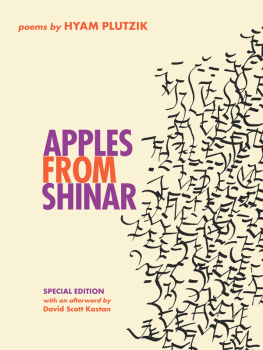

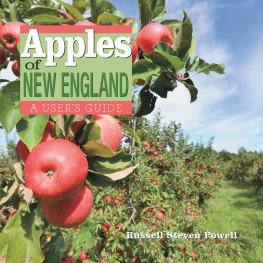
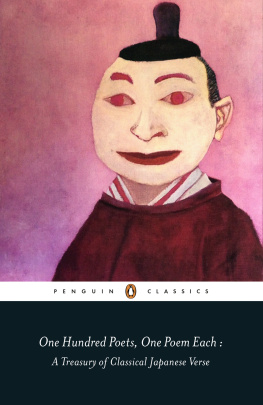
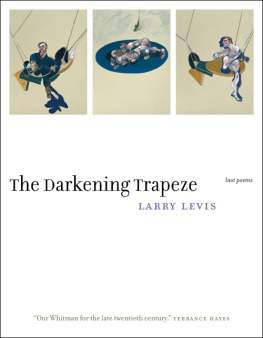

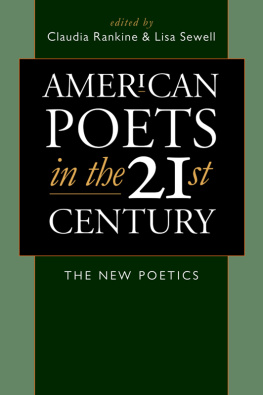
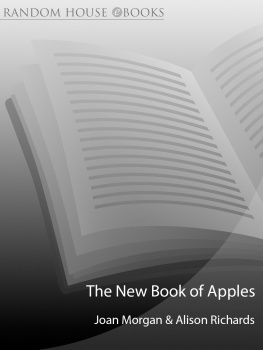

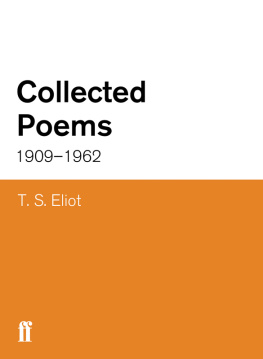
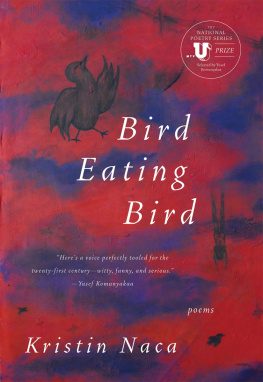
 APPLES FROM SHINAR APPLES FROM SHINAR
APPLES FROM SHINAR APPLES FROM SHINAR WESLEYAN POETRY CLASSICS
WESLEYAN POETRY CLASSICS 